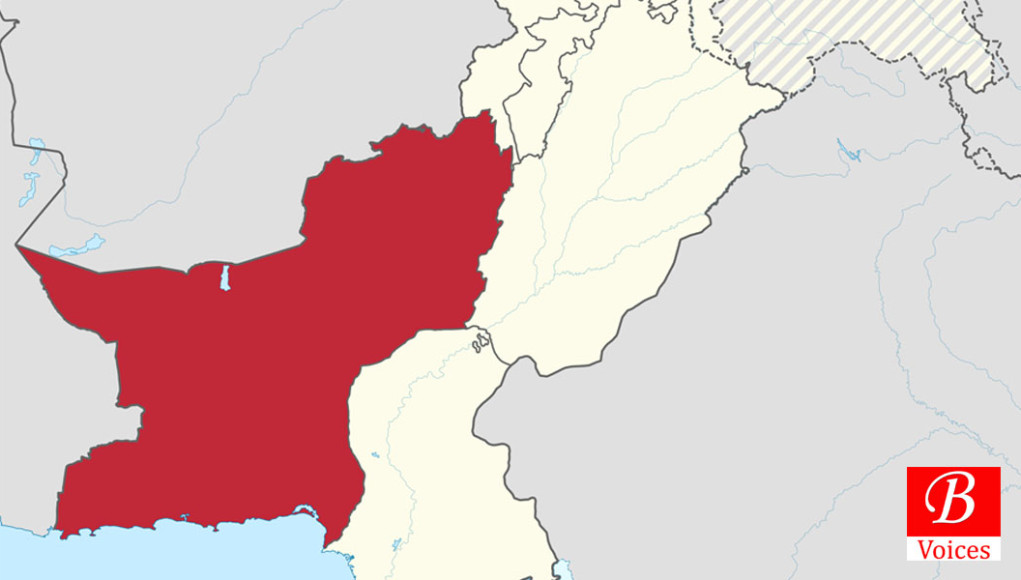Any political party that thinks it can gain control of troubled Balochistan is living in a fools’ paradise. Today, the PML-N is in power. Until June, the National Party (NP) was at the helm. In the last elections, the PPP won; in the early 2000s it was the PML-Q. Tomorrow, it could be the PTI, the PML-Q or the PPP.
Back in the 1970s the National Awami Party (NAP) was the only majority political party. When it splintered a number of different political parties emerged. They included the Balochistan National Party (BNP), the National Party (NP), the Jahmoori Watan Party (JWP), the Pashtunkhwa Milli Awami Party (PMAP), and later the BNP-Awami.
Some individuals joined mainstream political parties, such as the PML-N, the PML-Q, or the PPP, but they were not above switching loyalties for the sake of political expediency. Nawab Sanaullah Zehri, chief minister of the Balochistan chapter of the PML-N, was at one time affiliated with the Pakistan National Party (PNP), now the NP. Notwithstanding the fact that many in Balochistan still live in very primitive conditions and lack even the most basic facilities, it seems that greed for political power trumps any genuine desire to serve the people.
The BNP, NP, JUI-F and PkMAP each have their own vote banks and are therefore almost guaranteed to win in their constituencies. Given their inability to gain an absolute majority, however, they are forced to look to individuals in the PML-N, PML-Q, PPP or PTI to help them form a government.
The nationalists have failed abysmally in their efforts to consolidate their position in Balochistan. While tribalism is partially to blame, it is not the only culprit. The politics of division among the nationalists has also been a contributing factor, paving the way for opportunists and so-called tribal chieftains to secure seats in the government with the support of the powerful Pakistani establishment.
A careful study of the history of the province should convince the Baloch leaders that no one is going to rescue the province for them
A war-like situation prevails in the province. The constant conflict has taken a huge toll on the daily lives of the Baloch people, impacting everything from education and healthcare to security. Every nationalist party, whether pro-separatist or working within the framework of the Pakistani political establishment, is legitimately concerned about the current state of affairs. However, any progress towards a solution is thwarted by the differences within their ranks and their inability to unite around a common cause. And it is the people of Balochistan who are left to suffer the consequences.
President of Baloch Republican Party (BRP) Nawabzada Bramdagh Bugti’s statement about the possibility of holding talks was a reasonable one. That his overtures were spurned by the Federal Government and by power brokers in Pakistan was an eye opener, a clear indication that the establishment had little genuine interest in holding negotiations with hardliners. The Federal Government’s lukewarm response has been interpreted by Balochistan’s educated class to mean that it will support the rivals of the hardliners in order to prolong the war, and thereby justify its continued presence in the province, rather than bringing peace through negotiations.
The time has come for the main Baloch political parties and hardliners to revisit their policies and frame a rational strategy to attain their rights. It will not be an easy process, but it will surely be no worse than what the people of Balochistan have endured for the past decade.
The state of continuous war in Balochistan is of little concern to other ethnic groups in the country. Meanwhile, the Baloch people endure ongoing hardship, threats, killings and insecurity in their homes and neighborhoods. The situation is causing massive displacement of the population, and producing generations of children who are growing up deprived of a decent education. A careful study of the history of the province should convince the Baloch leaders that no one is going to rescue the province for them. They can only help themselves. And the more peaceful and democratic the struggle, the harder it will be for the enemy to suppress it.
Author is former correspondent of Express Tribune in Quetta.
Twitter: @Shezadbaloch
Share your comments!









